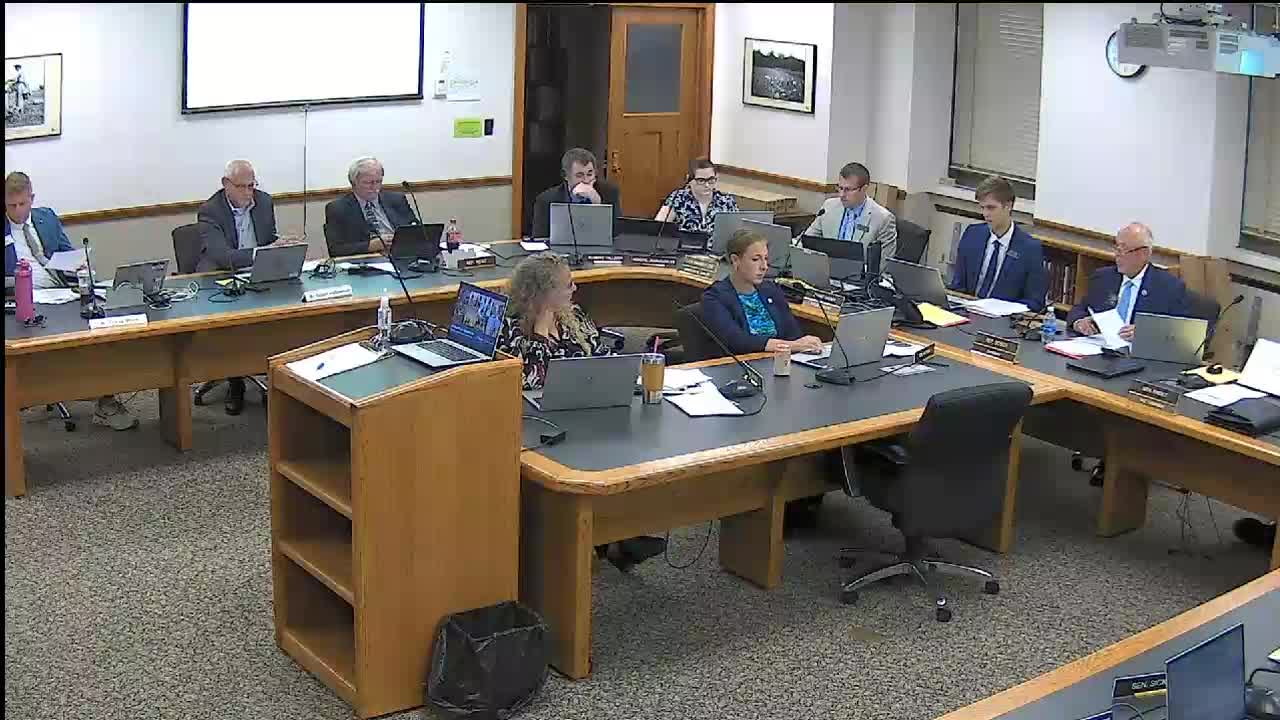Article not found
This article is no longer available. But don't worry—we've gathered other articles that discuss the same topic.
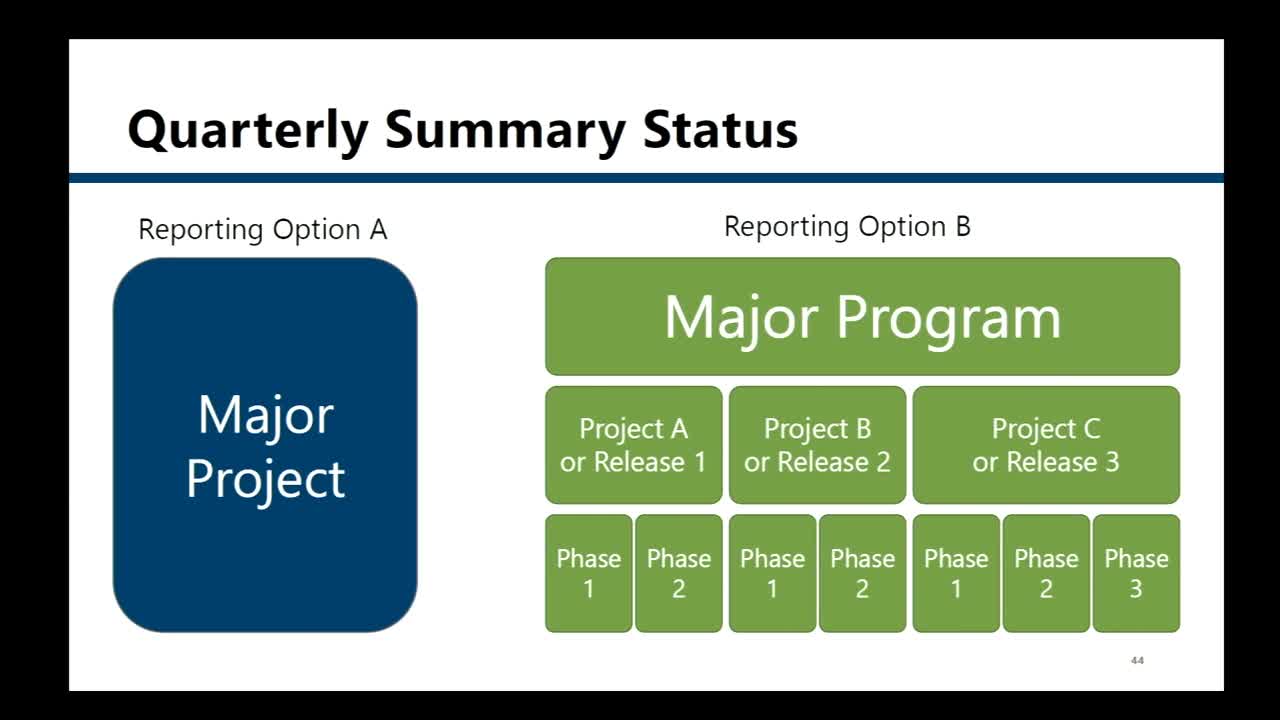
IT committee receives new dashboard, guidance after major-project threshold change
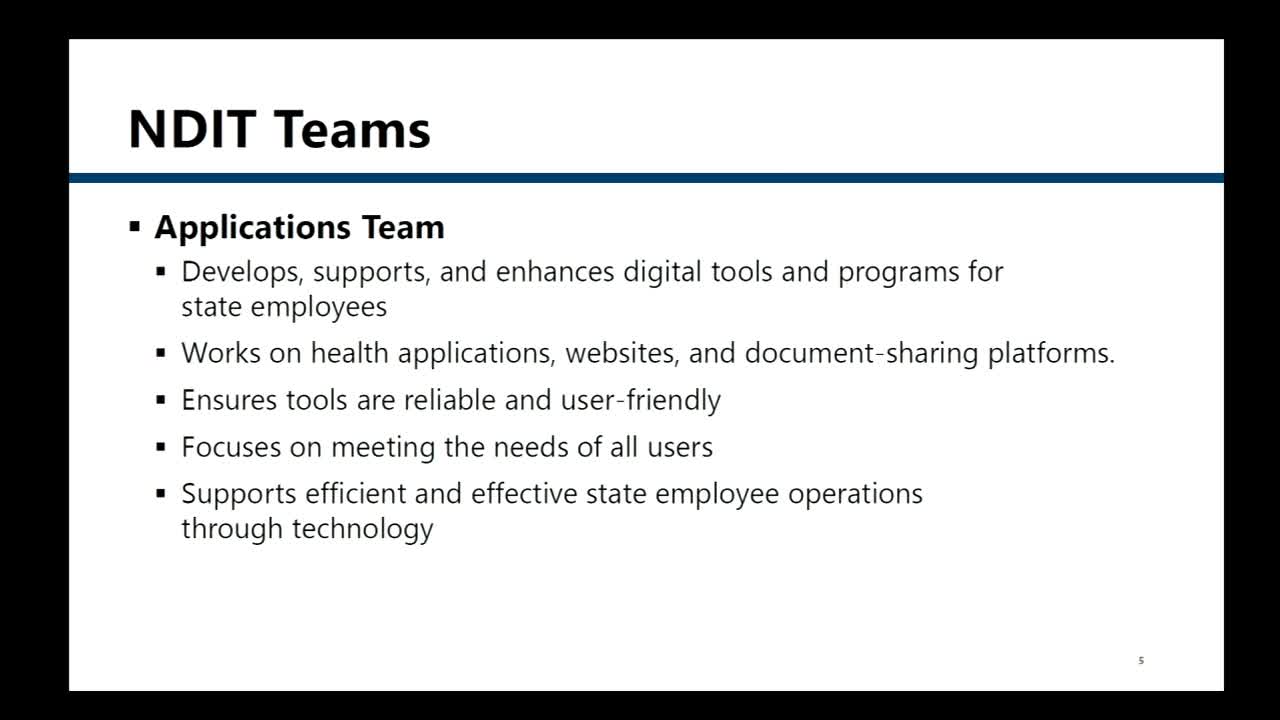
State IT pushes app rationalization, mainframe retirement and tech‑debt prevention
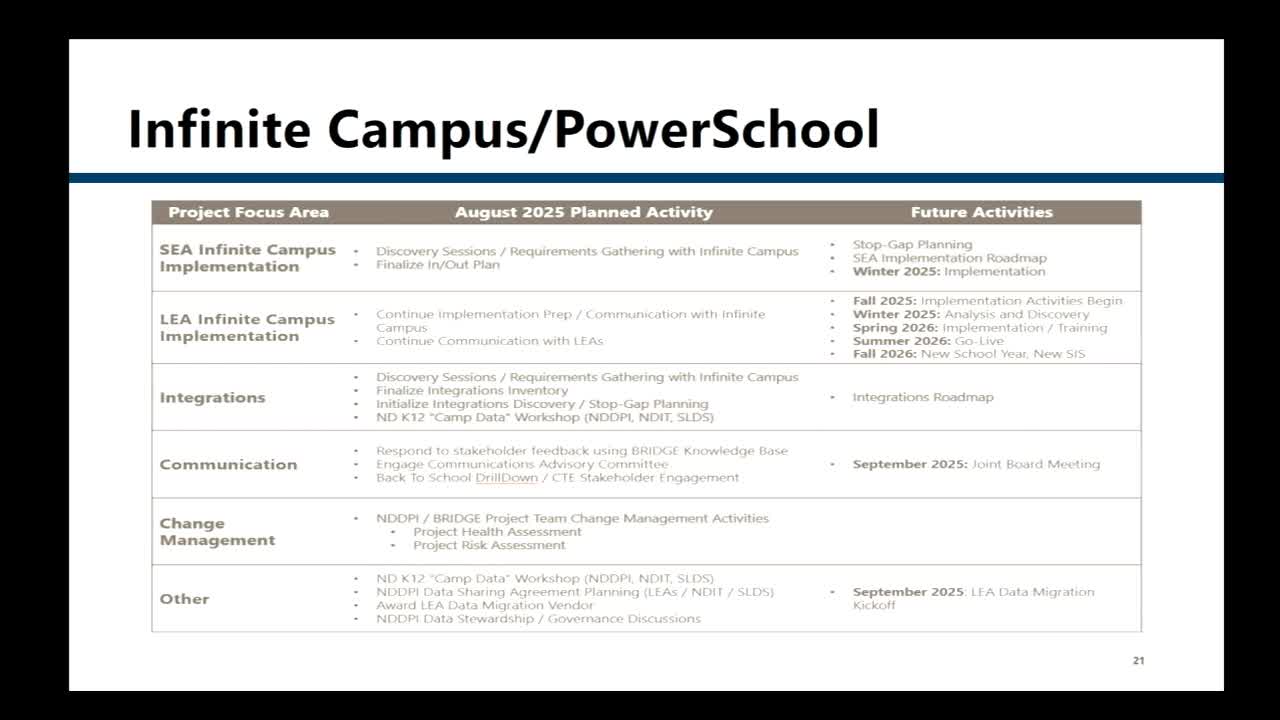
State IT and DPI prepare for July 2026 switch from PowerSchool to Infinite Campus
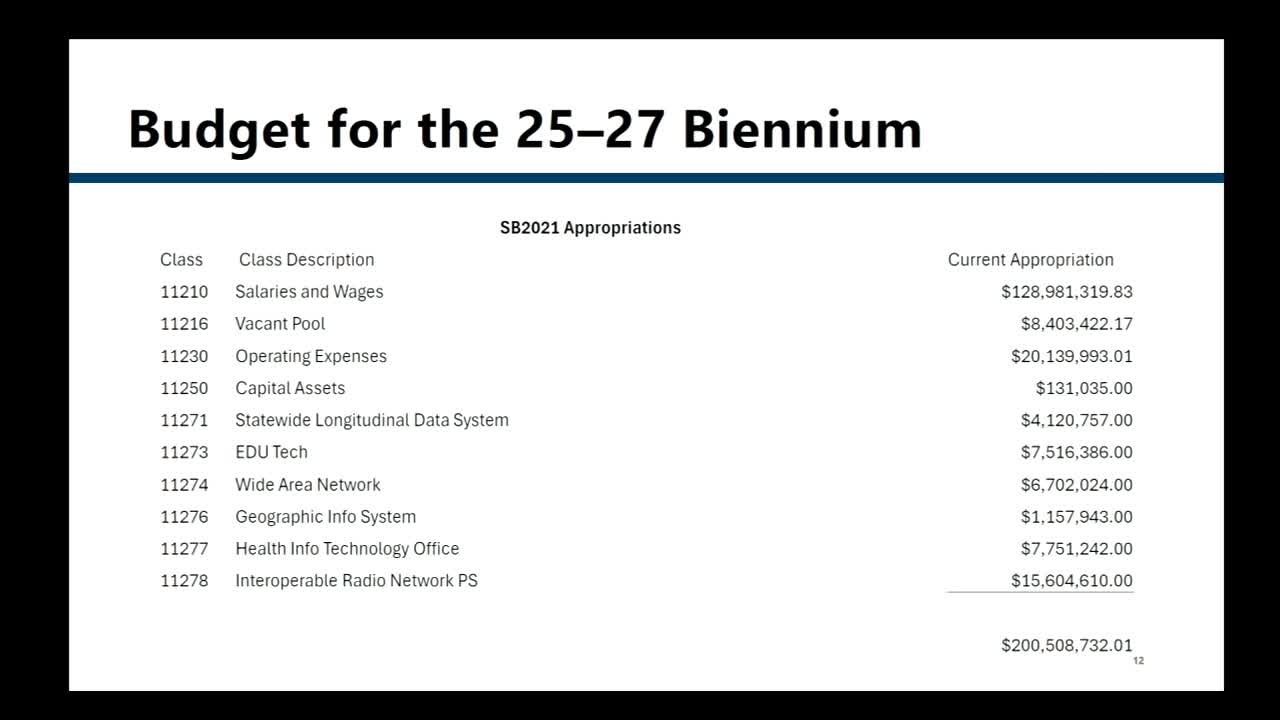
IT department outlines continuing appropriation plan and chargeback tradeoffs
